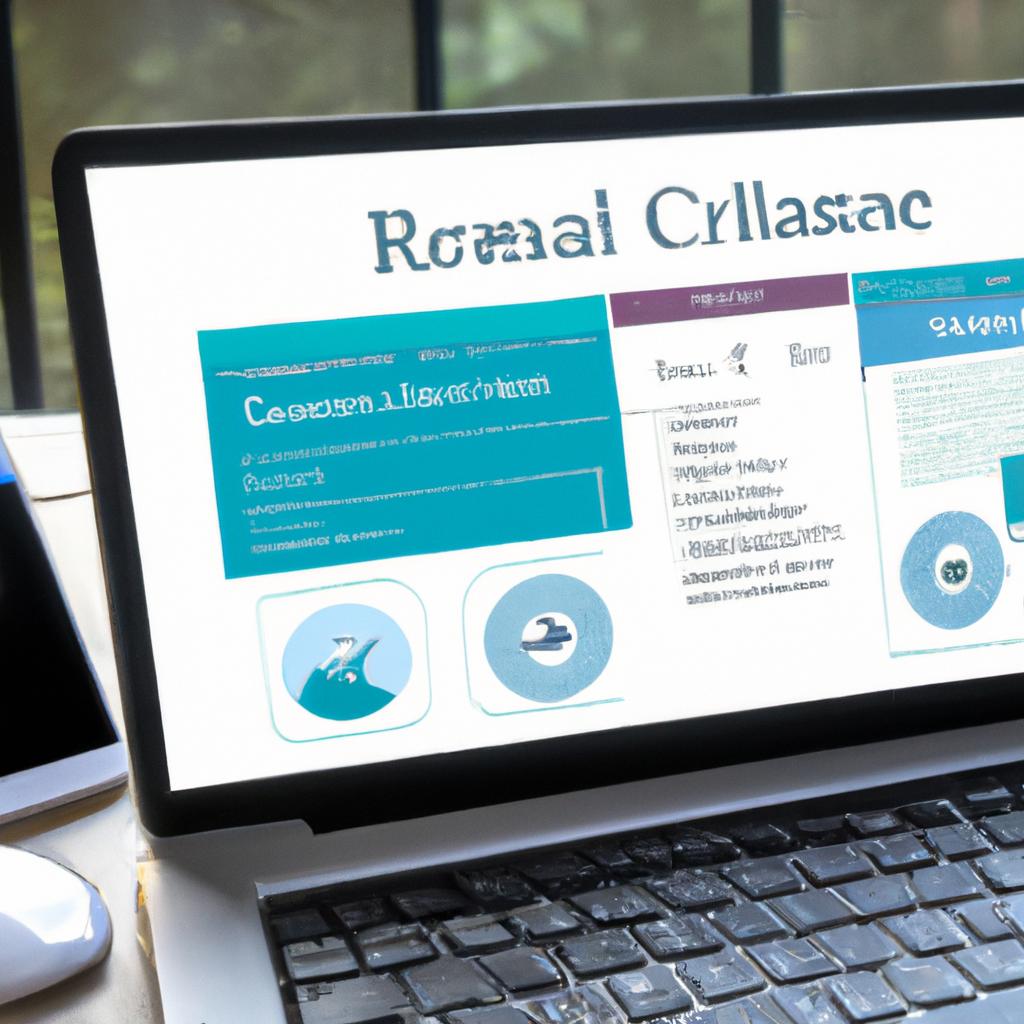Boost Your Roofing Business with CRM Software: A Comprehensive Guide
As a roofing business owner, you know that managing customer relationships and projects can be challenging. The good news is that CRM software can help. By implementing the right CRM software for roofing, you can streamline your business operations, increase productivity, and improve customer satisfaction.
In this comprehensive guide, I’ll explain what CRM software is, why it’s essential for roofing businesses, and how to choose the best CRM software for your needs. With this guide, you’ll be able to take your roofing business to the next level and achieve your goals.
Let’s dive in!
Understanding CRM Software for Roofing

Are you new to the world of CRM software? Don’t worry; I’ll walk you through it.
Definition and Explanation of CRM Software
CRM stands for Customer Relationship Management. CRM software is a tool that allows businesses to manage customer interactions, sales, and project management. The software collects customer data from various channels, such as email, social media, and phone calls, and stores it in a central database. This data can be analyzed to gain insights into customer behavior and preferences, which can help businesses make informed decisions.
Specific Features and Functionalities Relevant to Roofing Businesses
Roofing businesses have unique needs when it comes to CRM software. Here are some specific features and functionalities that are relevant to roofing businesses:
-
Project management and scheduling: Roofing projects can be complex, involving multiple tasks and timelines. CRM software can help you keep track of project progress, schedule tasks, and assign responsibilities.
-
Sales and lead generation: CRM software can help you manage sales leads, track sales activities, and monitor revenue. By analyzing sales data, you can gain insights into customer preferences and behavior, which can help you target your marketing efforts.
-
Customer service: Good customer service is crucial for roofing businesses. CRM software can help you track customer interactions, respond to inquiries quickly, and resolve issues efficiently.
Comparison of CRM Software Options Available in the Market
There are many CRM software options available in the market, each with its own strengths and weaknesses. Some popular options for roofing businesses include:
-
Salesforce: A cloud-based CRM software that offers a wide range of features, including sales and marketing automation, customer service, and analytics.
-
Zoho CRM: A web-based CRM software that offers sales automation, marketing automation, and customer support.
-
HubSpot CRM: A free CRM software that offers contact management, deal tracking, and email marketing.
Before choosing a CRM software, it’s essential to consider your business needs, budget, and technical expertise. By weighing the pros and cons of each option, you can find the best CRM software for your roofing business.
Benefits of CRM Software for Roofing

As a roofing business owner, you want to provide exceptional customer service while managing your business efficiently. CRM software can help you achieve both goals. Here are some of the benefits of implementing CRM software for roofing:
Improved customer relationship management
CRM software allows you to manage all of your customer interactions in one place. You can track customer inquiries, follow-up on leads, schedule appointments, and even send personalized messages to your customers. By having a complete view of your customers, you can provide better service and increase customer satisfaction.
Streamlined project management and scheduling
CRM software can help you manage your roofing projects more efficiently. You can create project timelines, assign tasks to team members, and track progress all in one place. This can help you avoid delays, stay on budget, and complete projects on time.
Enhanced sales and lead generation
CRM software can help you track leads and analyze sales data. You can identify your most profitable customers, track sales trends, and even forecast future sales. This can help you make better business decisions and increase your revenue.
Better data management and analysis
CRM software can help you manage your data more effectively. You can store all of your customer information, project data, and sales data in one place. This can help you analyze your business performance, identify areas for improvement, and make data-driven decisions.
Increased productivity and efficiency
By automating routine tasks and providing a centralized system for managing your business, CRM software can help you save time and increase productivity. You can focus on providing excellent customer service and growing your business, rather than managing administrative tasks.
In the next section, we’ll discuss key considerations when choosing CRM software for roofing.
Key Considerations When Choosing CRM Software for Roofing
When choosing a CRM software for your roofing business, there are several factors to consider. Here are some key considerations that can help you make an informed decision:
Budget and Cost-effectiveness
One of the first things to consider when choosing a CRM software is your budget. You want to find a software that fits within your budget without sacrificing quality. Look for software that offers a good return on investment and has transparent pricing.
Customization and Scalability
Your CRM software should be customizable to fit your specific needs. It should also be scalable to accommodate your business growth. Look for software that allows you to customize fields, workflows, and reports.
Integration with Existing Systems
Your CRM software should be able to integrate with your existing systems, including accounting software, marketing automation tools, and project management software. This will ensure that all your data is synced and up-to-date, saving you time and reducing the risk of errors.
User-friendliness and Ease of Implementation
Your CRM software should be easy to use and implement. Look for software with a user-friendly interface and intuitive navigation. Make sure that the software provides adequate training and support to ensure that your team can use it effectively.
Technical Support and Training
Finally, your CRM software provider should offer technical support and training. Look for software that provides ongoing support to ensure that your team can use it effectively. Make sure that the provider offers training resources, such as tutorials and webinars, to help you and your team get the most out of the software.
Best Practices for Implementing CRM Software for Roofing
Implementing CRM software for roofing can be a game-changer for your business. However, to ensure that you get the most out of your investment, it’s crucial to follow best practices for implementation. Here are some tips to help you do just that:
Setting Clear Goals and Objectives
Before implementing CRM software, it’s essential to set clear goals and objectives. What do you want to achieve with CRM software? Do you want to improve customer satisfaction, increase sales, or streamline project management? Identifying your goals and objectives will help you choose the right CRM software and ensure that you’re using it effectively.
Identifying and Prioritizing Key Workflows
Once you’ve identified your goals and objectives, it’s time to identify your key workflows. What are the critical processes in your roofing business that could benefit from CRM software? Examples might include lead generation, project management, and customer service. Prioritizing these workflows will help you focus your efforts and get the most out of your CRM software.
Ensuring Proper Data Migration and Organization
Proper data migration and organization are crucial for the success of CRM software implementation. Make sure that your data is clean, accurate, and up-to-date before migrating it to the new system. Ensure that your data is organized in a logical and intuitive way that makes sense for your business.
Regular Monitoring and Evaluation of Performance
Implementing CRM software is not a one-and-done process. To ensure that you’re getting the most out of your investment, it’s essential to regularly monitor and evaluate performance. Set up regular check-ins to review your progress towards your goals and make adjustments as needed. This will help you stay on track and maximize the benefits of CRM software for your roofing business.
Conclusion
In conclusion, CRM software is a game-changer for roofing businesses. By implementing the right CRM software, you can streamline your business operations, increase productivity, and achieve your goals.
Remember to choose a CRM software that fits your budget, is customizable and scalable, integrates with your existing systems, is user-friendly, and comes with technical support and training.
Implementing CRM software for your roofing business requires setting clear goals, identifying key workflows, organizing data, and monitoring performance regularly.
By following the best practices outlined in this guide, you can maximize the benefits of CRM software for your roofing business and take your operations to the next level.
Investing in CRM software is investing in the growth and success of your roofing business. So, what are you waiting for? Get started today and see the difference for yourself!

Comments are closed.